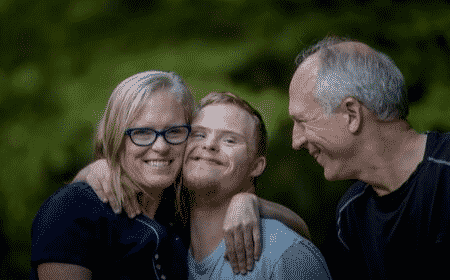We’re Here To Help.
Special Needs Planning
Home > Practice Areas > Special needs planning
If you have a loved one with special needs, whether it is an older person or a child, the last thing you want to do is leave them unprotected in the event something happens to you.
At Commonwealth Elder Law, PLLC , we understand the needs and concerns of those responsible for others with special needs and offer this planning service so that you can gain true peace of mind.
We have helped numerous families establish special needs plans that ensure their loved one will remain in good hands no matter what the future holds.
Our special needs planning service can cover everything from your legal considerations to available government benefits and programs to transition planning to residential options to employment opportunities to recreational choices to funding options to family communication and much more.
For example, depending on the degree of disability, your loved one may rely on many different caregivers to enhance their quality of life, such as advocates, social service coordinators, companions, guardians, job coaches, chauffeurs, personal care attendants, money managers, recreation directors and more.
We can help ensure you have a plan that guarantees the continuation of the services your loved one needs so that their quality of life does not disappear when you are gone.
Here is just some of what our attorneys can do when it comes to special needs planning:
- Help with securing SSI benefits
- Applying and qualifying for Medicaid
- Providing for a person with special needs in a will
- Applying for Guardianship
- Setting up a Special Needs Trust
- Setting up a Supplemental Needs Trust
- Estate Planning
- Asset protection, especially as it relates to long term care
- Family trusts
- Family care agreements
- Power of attorney
- Health care proxies and living wills
- Applying for Medicaid applications
- Nursing home planning
- Assisted living planning
- SSI disability
- And more
The Social Security Administration (SSA), has two different programs meant for those who are disabled to receive benefit payments that offset their inability to earn a living by working at a paying job. Those two programs are as follows:
Social Security Disability Insurance (SSDI)
The SSDI program was designed to provide benefits to those who have worked and paid into the Social Security system for a minimum of 40 quarters prior to their becoming disabled.
When it is determined that an individual is disabled under the SSDI program, that person receives his or her benefits regardless of their personal assets or total family income.
Supplemental Security Income (SSI)
SSI differs from SSDI in that it is a needs-based program. It is available to any individual to help with basic living expenses, regardless of whether or not they have ever paid into the Social Security system. When determining SSI payments, an individual’s personal assets are considered, as is the total income of their family.
You Can Still Get Benefits If You’ve Been Denied!

Just because your initial disability claim was denied does not mean that you are not disabled.
The fact is that the majority of SSDI and SSI claims are denied the first time around.
In some cases this is because the medical evidence provided was insufficient to approve your claim.
In no way should you give up because a Social Security disability claim has been denied. In fact, the sooner your initial claim is denied, the sooner you can appeal the denial.
An appeal means that the SSA will schedule a hearing, giving you the best chance to get your disability claim approved. Remember, if you are an SSDI or SSI claimant, chances are you have no idea about the rules and regulations that will affect your claim decision, nor are you familiar with the preparation of a SSA disability case.
Conversely, our experienced attorneys prepare such cases for a living and have experienced numerous disability hearings. We will know what questions to ask your doctor, what documents need to be filed, how to best support your claim, and what the ALJ will likely be looking for based on your medical condition or disability.
Just because your initial disability claim was denied does not mean that you are not disabled.
The fact is that the majority of SSDI and SSI claims are denied the first time around.
In some cases this is because the medical evidence provided was insufficient to approve your claim.
In no way should you give up because a Social Security disability claim has been denied. In fact, the sooner your initial claim is denied, the sooner you can appeal the denial.
An appeal means that the SSA will schedule a hearing, giving you the best chance to get your disability claim approved. Remember, if you are an SSDI or SSI claimant, chances are you have no idea about the rules and regulations that will affect your claim decision, nor are you familiar with the preparation of a SSA disability case.
Conversely, our experienced attorneys prepare such cases for a living and have experienced numerous disability hearings. We will know what questions to ask your doctor, what documents need to be filed, how to best support your claim, and what the ALJ will likely be looking for based on your medical condition or disability.
To learn much more about how we can help you protect a loved one with special needs, click here to schedule a consultation today. The sooner you contact us the more time we will have to prepare your case in such a way that the odds of approval are in your favor. So don’t delay, contact us now.
Other Practice Areas
Recognized Memberships:



Contact to Discuss Your Legal Needs
Our firm offers comprehensive elder law services, including estate planning and probate. To schedule an appointment or to learn more about our firm, call us at 859-780-5748, or send us an email.

Sitemap | Privacy Policy
© 2020 campbellandsmithlaw.com.
All Rights Reserved.

Contact Us To Learn How We Can Help Your Family








